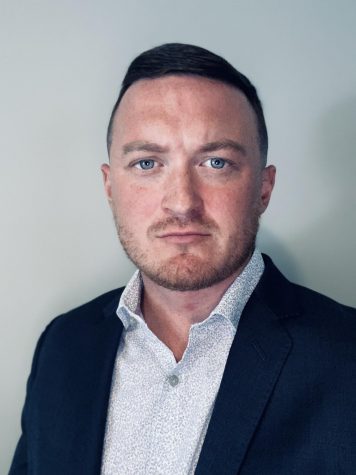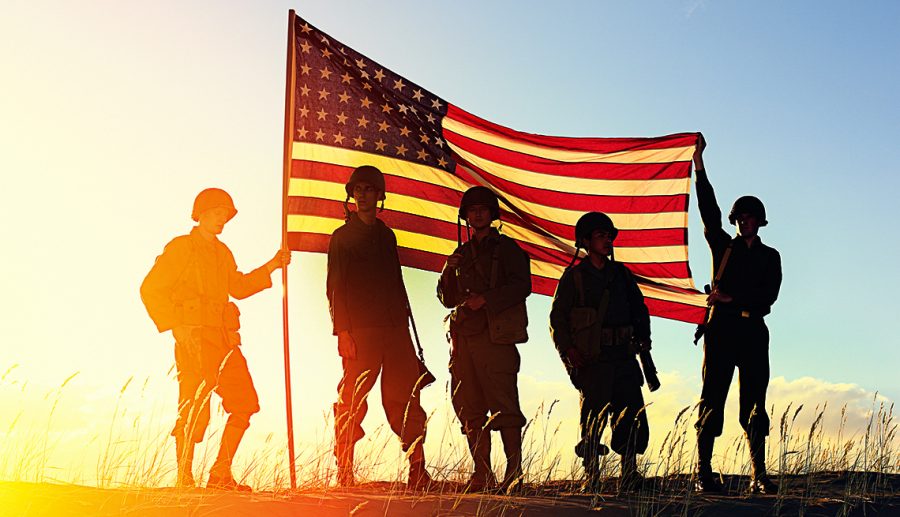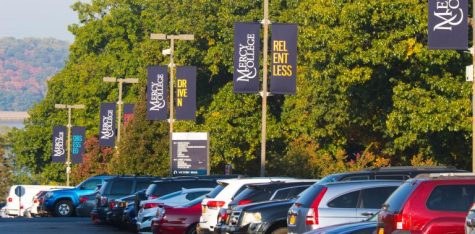From Soldiers to Students; The Challenges of Transitioning Veterans
A new semester has begun to take shape at Mercy College. Freshmen students start to arrive and get settled, but adjusting to a new lifestyle of their own might be difficult for some.
As other upper-classmen reunite after previous semesters of virtual learning, there is a fresh atmosphere amongst the student body. However, what might be an easy adjustment for some has a different effect on a select group of Mercy students. Veterans.
Nestled down in the basement, across from the student bookstore, is an unmarked door. By slight chance, you might have seen a student scan an ID card to get in. On the other side of this door is the veteran’s lounge, a place of solitude, comfort, and quiet for veterans on campus.
Beyond the stories, triumphs, and experience in that room lies some unknown for the men and women who utilize the lounge daily. Hardships that others cannot justify nor comprehend. For most of them, transitioning from military life to being a student presents its unique challenges.
Challenges that make getting out of the military seem more like leaving prison. To give a better understanding, veterans do not lack time management or issues with submitting assignments on time but rather; struggle navigating through the complexities of earning a degree.
One veteran (who would prefer to be left unnamed) has described his new experiences on campus over the past few semesters as,
“…difficult to maintain.”
“I enjoy my major, and the coursework last semester was not an issue; it is just the process you have to go through. It is defeating at times. Email trails get passed along from one to the other, and the hurdles you navigate through to get to where you want to be. It is just not at all worth the added stress.”
Whether it be: familiarity with the school, difficulty navigating through the blackboard portal, or initiating contact with an academic advisor; Not having a liaison to make this adjustment cycle less stressful is something that is often overlooked.
As a fellow Navy veteran myself, I write from a personal experience on just how difficult it is to transition from an active-duty military lifestyle to live as a full-time student.
The transition for most veterans from active duty to college students creates a culture shock-like atmosphere. Not a culture shock in the way that you might be thinking. Veterans do not have the regular growing pains that most of the student body possess.
As for most of the veterans in that lounge, we share information with one another. Who to contact for scheduling, where to log in for this, or where to apply for this and that. Never letting a veteran who is uninformed or
unsure, fall by the waist side because that is what we do.
We pick each other up.
Word of mouth is something that we use to share the vital information we feel as if the Veterans Administration VA or the school itself has not shared with us.
Maybe, just maybe, the school would refute this notion. We’d beg to differ.
The culture presents itself that way. The cake on Veterans Day does not exactly fill us with a warm and fuzzy feeling either. Since 2018, my first semester on campus, I have seen five academic advisors come and go.
The first two were not even on campus! Not quite the best way to begin the adventure of going back to school at 30.
But why? Why the constant change?
Many of us do not like change. Routine is part of our complex nature. We all had experiences where orders were given to us, directed on how to complete missions, told where to be and when, how to dress, among other mandatory actions.
As veterans, whether it be our reality or not, most of us adjust. Relying on each other more than we would care to admit have all been part of the process of getting acclimated to life as a civilian.
Most of the veterans gave up their 20s or 30s to be a part of something bigger than themselves, and for whatever reason they seem fit. They served. We all should have more comfortable experiences on this. We have already done our share.

Henry is a Senior, Media Production major who joins the Impact News staff having spent his last 2 years at Mercy College. Prior to Mercy College, Henry...








